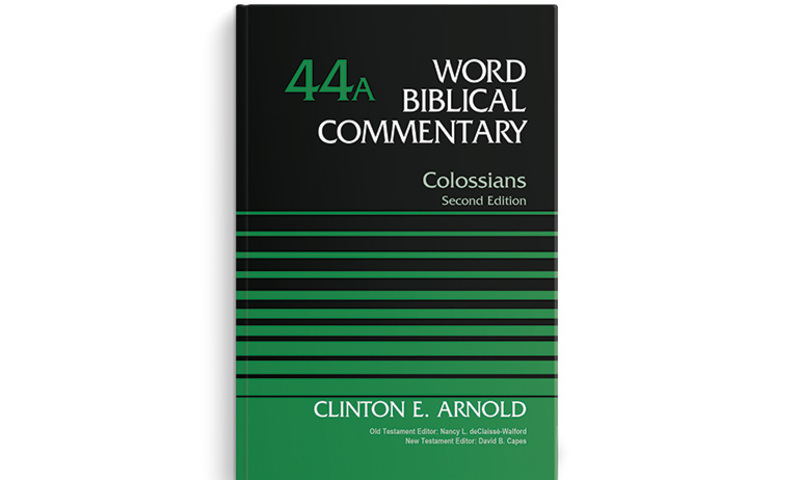In the Sermon on the Mount, Jesus called on his disciples to ŌĆ£seek first the kingdom of God and his righteousnessŌĆØ (Matt 6:33 ESV). In language reminiscent of that important injunction, Paul urges the Colossians to ŌĆ£seek the things aboveŌĆØ and ŌĆ£set your mind on the things aboveŌĆØ (3:1ŌĆō2). He wants them to focus their thoughts and affections on the meaning of their new life in Christ and the ethical values that characterize the reign of Christ. There are five theological emphases in this brief passage that are particularly relevant to the Colossians and for us today.
(1) Being Raised with Christ. Paul introduces this section with an emphasis on their experience of co-resurrection with Christ (3:1a). This reaffirms what he has already said in 2:12. The purpose of the co-resurrection theme is not only to emphasize JesusŌĆÖ power over death and his resultant new life (3:4a; Rom 6:4), but his victory over the principalities, powers, and authorities (2:15). Since believers participate in JesusŌĆÖ resurrection through their union with him, they share in his power and authority over the demonic realm. Because of their identification with Christ, believers now have access to the power and authority of Christ over this realm (2:10).
(2) Dying with Christ. Paul also reiterates that the Colossians have died with Christ (3:3). He had earlier asserted that they have been buried with Christ (death with Christ is implicit) as represented in their baptism (2:12a). When he repeats this theme in 2:20, he explicitly brings out the relevance for the supernatural opponents: they have died with Christ ŌĆ£from the demonic spirits of the worldŌĆØ (2:20a). By participating in Christ death, they not only experience deliverance from the power of sin as it comes to expression in the evil influence of the flesh (2:11b), but also deliverance from the realm of the demonic powers (1:13; 2:15). This is important for the Colossians to know because Paul regards the teaching of ŌĆ£the philosophyŌĆØ as being ultimately derived from demonic influence (2:8). This declaration that the power of evil influence, whether felt through the evil influence (the flesh) or from spirit influence, is now broken because of the work of Christ helps prepare the way for the Colossians to rid themselves of unholy practices and to put on Christian virtues.
(3) Christ is ŌĆ£aboveŌĆØ and not ŌĆ£below.ŌĆØ People living in the Lycus Valley were accustomed to thinking of the dead as descending to the world below. The realm of Hades and various underworld gods and spirits was ŌĆ£below.ŌĆØ By contrast, Christ has been exalted ŌĆ£aboveŌĆØ and sits at the FatherŌĆÖs right hand. He is superior to all of the powers below. Believers are called to focus their thoughts and affections on heavenly matters. This includes living by GodŌĆÖs standards of holiness and righteousness.
(4) Believers are safe and secure. Because Christians are ŌĆ£with Christ in God,ŌĆØ they are safe because of their union with him (3:3). They are joined with a person who has defeated the power of sin, the flesh, death, and all supernatural opposition. ŌĆ£Hidden with ChristŌĆØ is a way of expressing their security in him. As an eagle protects her young under her wing, so the Lord hides his children away under his protective care. The Lord is their shelter, rock, and refuge. This assurance alleviates fear.
(5) The future of believers is determined and is glorious. Paul repeats the eschatological hope of ChristŌĆÖs return (3:4; see 1:27) but emphasizes how this will result in a glorious future for believers. There is no political power, astral spirit, horoscope, or ritual curse that can alter the future that Christ has prepared for those who are in him. God is sovereign and his purposes cannot be thwarted by any power.
The fear of demonic spirits, cosmic powers, and underworld spirits made the Colossians susceptible to the teachings, rituals, and practices of the shamanistic teacher. In this passage ŌĆö and throughout Colossians ŌĆö Paul addresses these underlying concerns by exploring with them the full set of implications for what it means to be in a relationship with Jesus Christ. With regard to ŌĆ£the philosophyŌĆØ at Colossae, it means that these believers do not need to accede to the impulse to rely on ritual power and traditions that come from local religions and spiritual practices. Because they are in Christ, they can draw deeply on what this means for their lives not only for resisting ŌĆ£the philosophy,ŌĆØ but for cultivating the distinctively righteous and holy lifestyles that are necessary in being joined to a holy God.
Taken from Colossians (Word Biblical Commentary) by Clinton E. Arnold (B.A. ŌĆÖ80; M.Div. ŌĆÖ83, research professor of New Testament). Copyright ┬® 2025. Used by permission of Zondervan. .
 Biola University
Biola University



